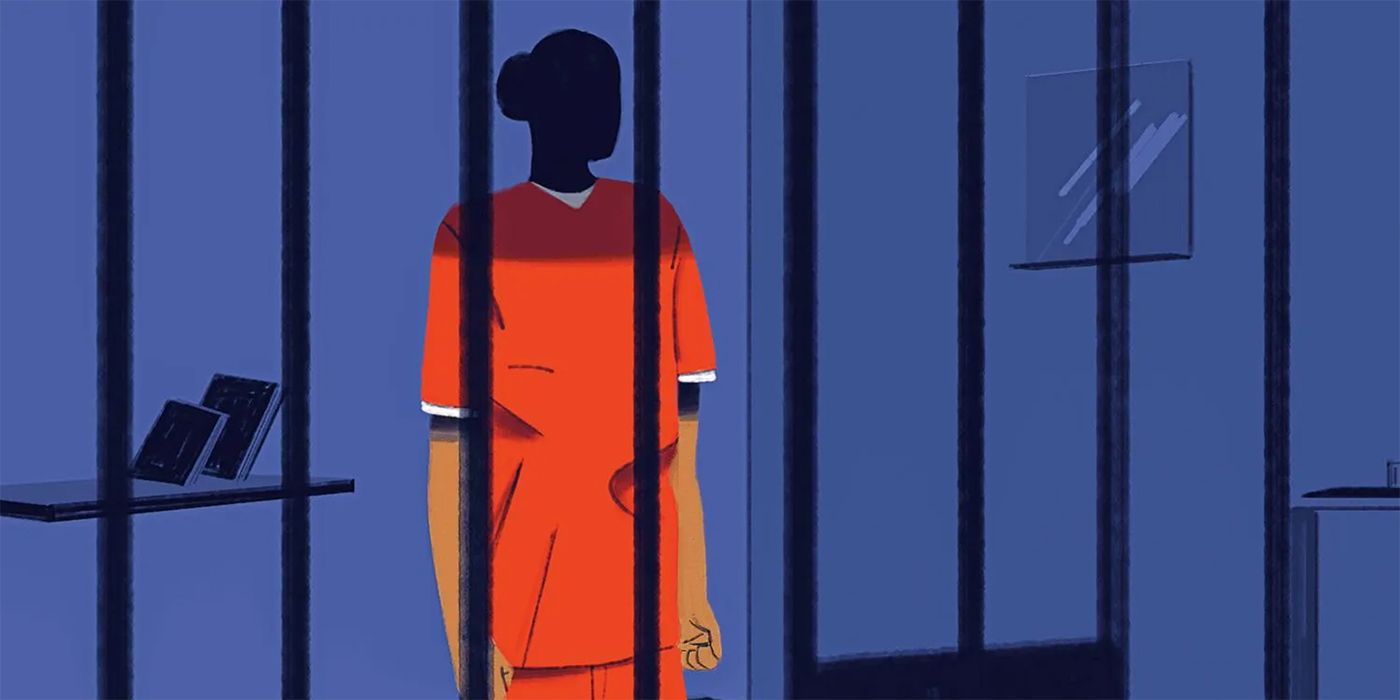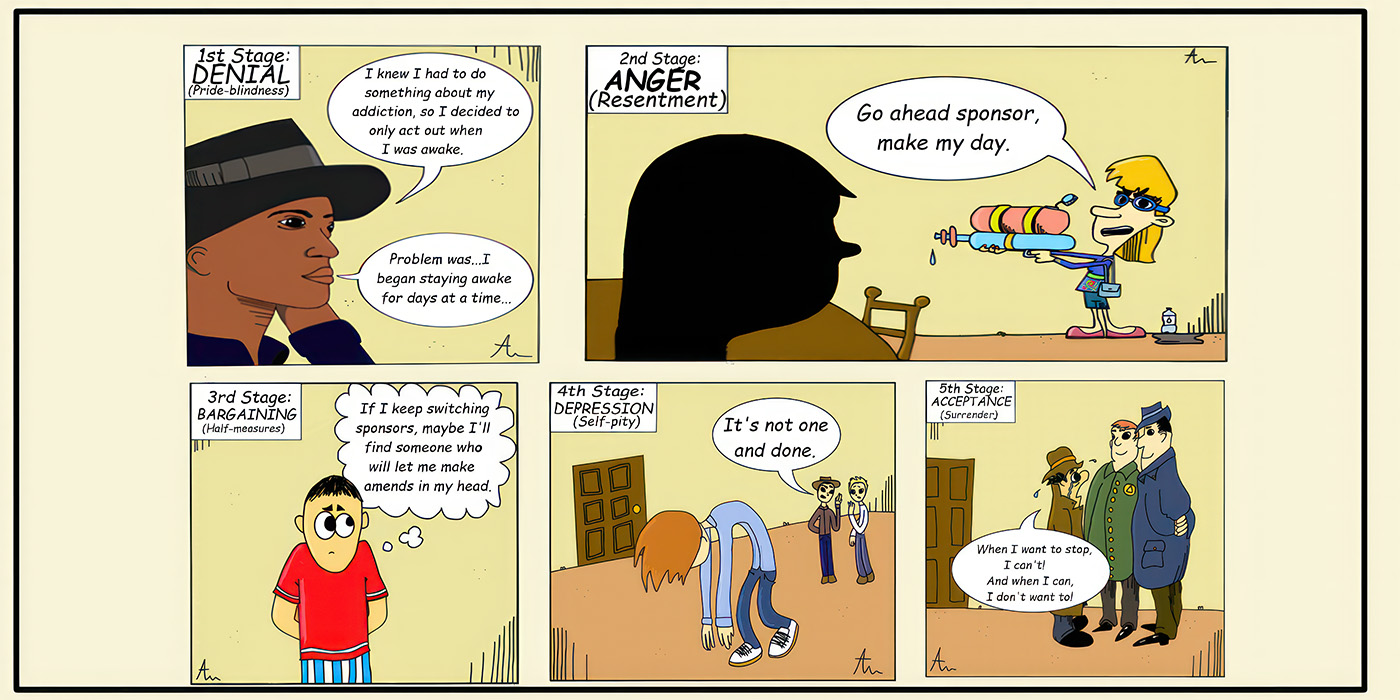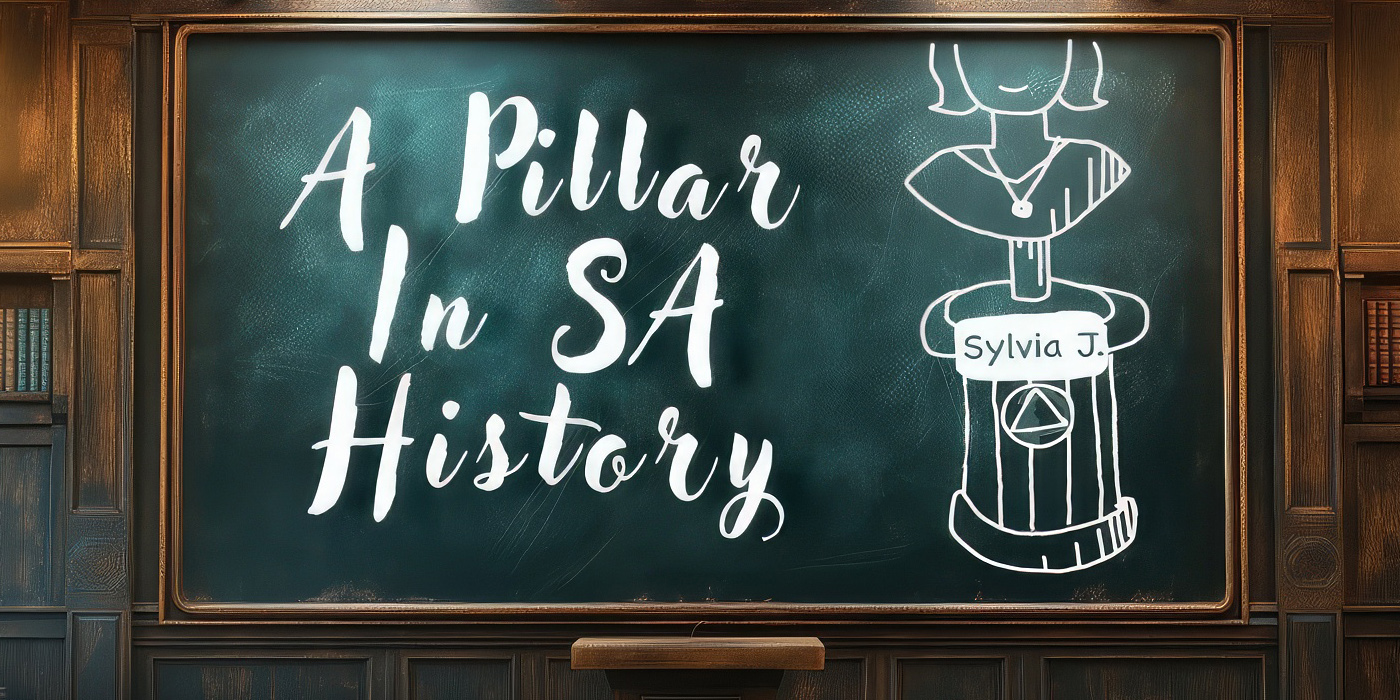
SA Helped Her to Develop a Sense of Peace
No one as a child growing up ever thinks they might one day end up in jail or as a sexaholic. Yet, that’s what happened to me. I am a female sexaholic, sober since January 19, 2020.
My parents were conservative, but not religious. My mother cared for me as best she could, but was at times physically abusive. My father was socially distant. Neither parent hugged me nor showed delight with my creativity and talent.
When I was eight, I was molested in a theatre. I never told anyone what happened. Growing up I also never told anyone I’d been molested by strangers, a cousin, and a couple of doctors. In my teens I found a stash of my father’s pornographic material and became intrigued by the photos. That may have been the start of my lusting and wanting to be lusted after.
Eventually, I married and had a child. My husband and I had an “open” marriage that ended after seven years. While divorced, I had a few one-night stands before I found a new love. We lived together for twelve years in a common-law marriage. I became a teacher but wasn’t very good at it. I was conservative, strict, and distant most of the time.
When I became unhappy with my career and relationship, I “fell in love” with a student who had a crush on me. He was sexually advanced for his age, and I had sex with him. Talking to a psychiatrist about my misgivings, she reported me to the police, and after admitting the truth, I was arrested.
Losing my freedom devastated me. I was sentenced to a year. My incarceration nightmare lasted eight months before I was let go “on good behavior.” Some nights I used my imagination and my mind’s stash of porn images to help me act out and feel a sense of relief. But it wasn’t safe for me to masturbate in those quarters. I didn’t want to get caught in the act by anyone. Later, I learned that open sex, even prostitution was occurring in my assigned ward. I didn’t want trouble, so I ignored what was happening.
Once, a lady tried to get in bed with me after the lights were out. I forcefully pushed her away, and yelled, “You’ve got the wrong bed!” I thought of myself as being “straight” and only interested in the opposite sex, but after a few months behind bars, I became intrigued with a lady who was gay and promiscuous. It surprised me, but now, I can only link my feelings for her to that of a sexaholic attracted to another sexaholic. Although I wanted to act out with her, I decided that it would be best not to do so in prison for the sake of my own sanity and health.
Jail time can easily trigger guilt, shame, remorse, loneliness, fear, and other negative feelings. It can also trigger anger and resentment towards self and others. If the program had been introduced to me while I was incarcerated, I might have understood my feelings better and discovered the solutions to help me handle those feelings.
Right after my sentence ended and I was out in the world, I became sexually anorexic. I hid away from the world. Disconnecting made me vulnerable to depression and wanting to end my life. When I was at my lowest, someone told me about SA. I realized after attending several meetings, that SA and the fellowship was helping me manage and accept myself and my situation. I became happier and healthier with a sense of peace that I needed in my life.
Can imprisoned people benefit from exposure to SA? I believe so. Many inmates are sexaholics. Many offenses are offenses that involve sex. Most sexaholics don’t normally become offenders, but a few have come close to being arrested. Those that do get arrested are not the horrible characters of fairy tales and myths, but they’re normal people who don’t know how to handle the triggers that might set them up to act out in self-destructive ways.
Before SA I went through cycles of lust and wanting to be lusted after. I thought love and sex were the same thing. In the program, I learned the difference, and to admit my defects, such as jealousy, resentment, and unrealistic expectations. I reconnected with God, and I memorized the Serenity Prayer, which I now often say throughout the day. I’ve also worked the Steps. In the Third Step, “Surrendering to the God of my understanding” helped me to “let go and let God”—giving me a sense of peace with myself and the world.
At meetings I hear problems I can identify with. I also hear solutions to the problems. Calling, texting, or writing to a sponsor or friend in the program is very helpful. Connecting with someone who understands, saves both of us from acting out. That is why we, who have a measure of sobriety, can reach out and help a brother or sister who is incarcerated, and in turn be reminded of what brought us to SA. During the week I attend at least three meetings. Keeping in touch with my sponsor and female friends in the fellowship of brothers and sisters helps me stay connected.
My hope is that those incarcerated reach out to SA for a sponsor who can connect with them, and that those in the program make a connection with an inmate who wants spiritual help. Everyone, including inmates, deserves the chance to connect with peace and understanding.
Anonymous, California, USA






